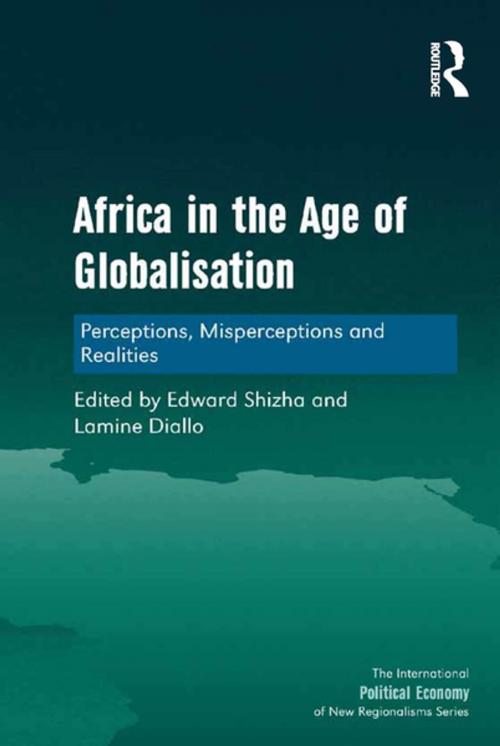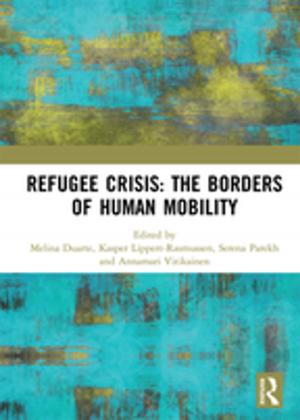Africa in the Age of Globalisation
Perceptions, Misperceptions and Realities
Nonfiction, Social & Cultural Studies, Political Science, Politics, Economic Conditions| Author: | Edward Shizha, Lamine Diallo | ISBN: | 9781317184478 |
| Publisher: | Taylor and Francis | Publication: | March 9, 2016 |
| Imprint: | Routledge | Language: | English |
| Author: | Edward Shizha, Lamine Diallo |
| ISBN: | 9781317184478 |
| Publisher: | Taylor and Francis |
| Publication: | March 9, 2016 |
| Imprint: | Routledge |
| Language: | English |
This is a collection of bold and visionary scholarship that reveals an insightful exposition of re-visioning African development from African perspectives. It provides educators, policy makers, social workers, non-governmental agencies, and development agencies with an interdisciplinary conceptual base that can effectively guide them in planning and implementing programs for socio-economic development in Africa. The book provides up-to-date scholarly research on continental trends on various subjects and concerns of paramount importance to globalisation and development in Africa (politics, democracy, education, gender, technology, global relationships and the role of non-governmental organisations). The authors challenge the familiar paradigms in order to show how imperfectly, if at all, assumptions about globalisation and development theories have failed in their depictions and applications to Africa. The scholars in this volume both inform and advocate for a re-visioning of perceptions on Africa and how it navigates global processes.
This is a collection of bold and visionary scholarship that reveals an insightful exposition of re-visioning African development from African perspectives. It provides educators, policy makers, social workers, non-governmental agencies, and development agencies with an interdisciplinary conceptual base that can effectively guide them in planning and implementing programs for socio-economic development in Africa. The book provides up-to-date scholarly research on continental trends on various subjects and concerns of paramount importance to globalisation and development in Africa (politics, democracy, education, gender, technology, global relationships and the role of non-governmental organisations). The authors challenge the familiar paradigms in order to show how imperfectly, if at all, assumptions about globalisation and development theories have failed in their depictions and applications to Africa. The scholars in this volume both inform and advocate for a re-visioning of perceptions on Africa and how it navigates global processes.















